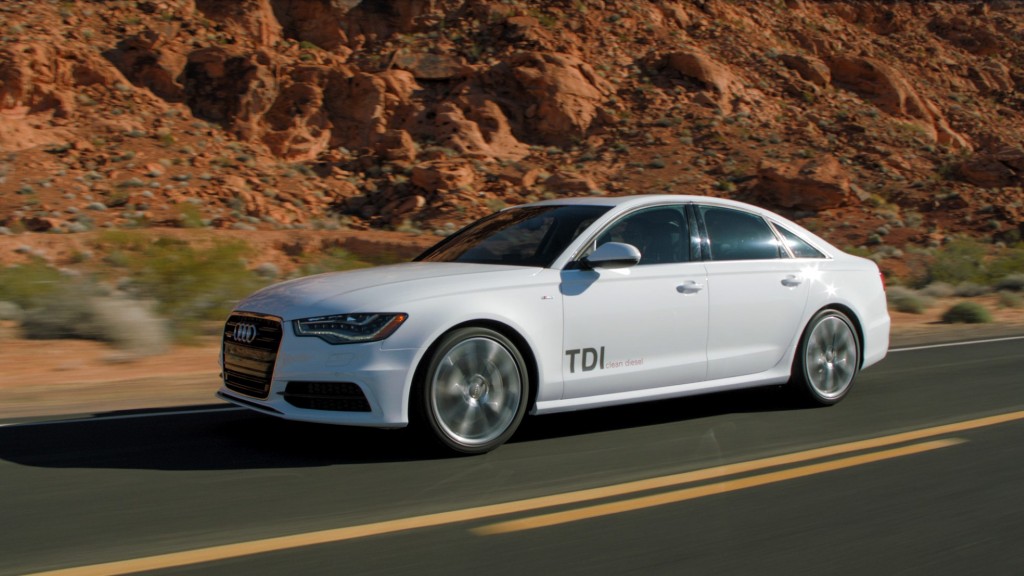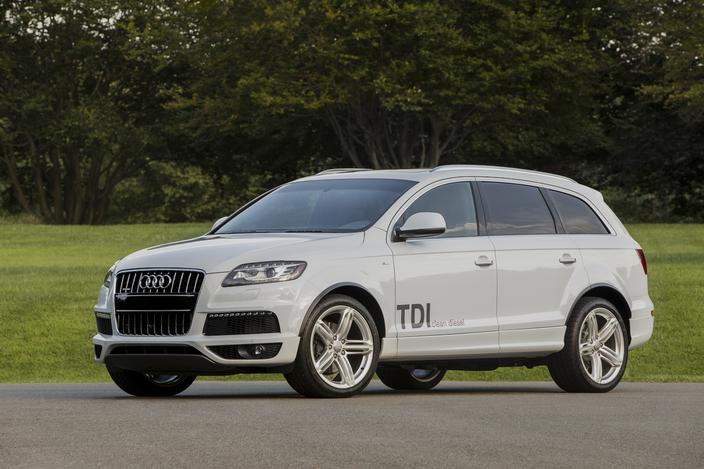Although it's not been in U.S. news much lately, the VW diesel scandal continues to unfold in Germany, as prosecutors continue their investigations over whether criminal acts were committed under German law.
That doesn't mean U.S. investigations have finished, however.
Last week's arrest in Germany of a former Audi executive, Zacchio Giovanni Pamio, on charges brought by the U.S. Department of Justice, indicate that investigators in the two countries may be cooperating.
DON'T MISS: Germany investigates possible Audi diesel emission cheats
He's the second former VW Group executive to be arrested, after Oliver Schmitt was apprehended at the end of a Miami vacation in January.
As a report in The New York Times noted, Pamio's arrest represents "a rare opportunity to bring a suspect to trial in the United States." While Germany virtually never extradites its citizens to other countries, Pamio is Italian.
Pamio is "a relatively small player," but his arrest may indicate that U.S. investigators are targeting lower-level employees to testify against their superiors.

2014 Audi A8 L TDI
Pamio's arrest was the first to date on German soil related to the Volkswagen diesel emission scandal, which emerged into public view in September 2015.
That was when the company first admitted it had fitted "defeat device" software to at least some of more than half a million TDI diesel cars from Volkswagen, Audi, and Porsche.
The software kept the cars' emissions within regulatory limits when the cars detected they were being lab-tested on a dynamometer, or "rolling road," but removed those limitations in real-world use, producing emissions of nitrogen oxides many times the legal limit in some circumstances.
CHECK OUT: Settlement for U.S. Audi, Porsche, VW 3.0-liter diesel TDI owners announced
One interesting allegation emerged from the complaint against Pamio filed by U.S. prosecutors' following his arrest.
As the Times describes it, starting in 2006, Pamio helped to find ways that Audi vehicles could evade new and much more stringent U.S. emission controls on diesel engines, which were to take effect on January 1, 2008.
His work began because, according to the complaint, other departments involved with the design of future Audi products refused to allocate enough space within the vehicle structure for the necessary emission aftertreatment system that would be required.

2013 Audi A6 TDI
That system included a tank for liquid urea solution, an additional catalytic converter, and various additional sensors, electronics, and plumbing.
The space required for a urea tank of sufficient size was needed, the complaint alleges, for high-end audio components instead.
Because Audi feared customers would reject its diesels if they had to refill the urea tank too frequently, Pamio appeared in a video—next to a car marked, "The cleanest diesel in the world"—that assured buyers refills would only be needed every 10,000 miles.
That was the scheduled interval for oil changes in their 3.0-liter TDI V-6 turbodiesel engines. But the tank required to provide sufficient urea for 10,000 miles impinged on space needed for certain audio components.
Premium sound systems are popular all over the world on luxury models, including those from Audi, and usually a very profitable option.

2015 Audi Q7 TDI
The emission-control hardware necessary to meet tough new U.S. emission standards might be used on only a few thousand Audis a year—since comparable limits didn't come into effect in the EU until this past January 1, nine years later.
If the allegations in the complain are correct, VW Group executives made a business decision to deceive the U.S. government for several years and lie about it repeatedly, so Audi could reap global profits from optional high-end audio equipment.
Pamio's arrest puts more attention on the possible role of the Audi brand, as the Times notes, which had far fewer cars affected by the various recalls and buybacks than did its mass-market sibling Volkswagen.
_______________________________________













